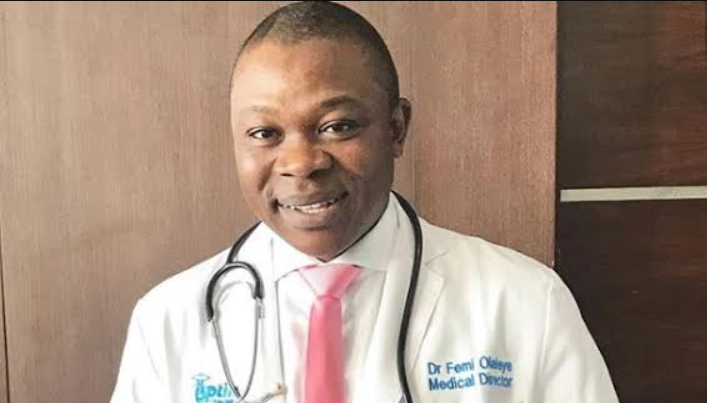State government representatives at the Federation Accounts Allocation Committee (FAAC) meeting expressed disappointment over the Federal Government’s decision to set aside additional revenue for the new minimum wage payment, which impacted their share of federation revenue.
The controversy arose when it was revealed that the government transferred N200bn into a non-savings account at the August FAAC meeting, bringing the total to N595bn.
Finance Commissioners from Akwa Ibom (Dr. Linus Noah), Delta (Okenmor Tilije), and Ekiti (Akintunde Oyebode) raised concerns about this development during the August 16, 2024, FAAC meeting.
Despite a N13bn increase in gross revenue from N2.48tn in June to N2.61tn in July, the committee distributed N1.36tn to the three tiers of government, N1bn less than the previous month’s allocation.
In his opening address, Finance Minister Wale Edun commended President Bola Tinubu for signing the National Minimum Wage Act into law, highlighting its benefits for all Nigerians.
However, the state governments’ concerns highlight the challenges of implementing the new minimum wage amidst competing demands on federal revenue.
He further disclosed that discussions were still ongoing on the consequential adjustments.
The minutes quoting the minister read, “Work on the new minimum wage is still in progress, adding that government had continued to dialogue with the organised labour and the private sector with a view to reaching an agreement.”
But after a presentation by a representative from the Office of the Accountant-General of the Federation on the gross statutory revenue and necessary deductions of N1.29tn, the commissioner took turns to question the reasoning for such deduction.
Reacting, the Commissioner of Finance, Akwa Ibom State, Dr Linus Noah faulted the move, stressing that the income should be shared in view of the current financial challenges faced by the states.
Additionally, Dr Noah’s counterpart from Delta State, Okenmor Tilije, disagreed with the proposed idea of saving the money for the benefit of the central government only and asked that it be shared to augment the distributable allocation.
The minutes read, “The HCF, Akwa Ibom State, referred to the provision made in the month for transfer to Non-Oil Savings Account. He proposed that given the financial challenges facing the states, the amount should be used to augment the distributable revenue for the month.
“In addition, the HCF, Delta State, agreed with his counterpart from Akwa Ibom State on the need to share the N595bn in the Non-Oil Savings Account to augment the distributable revenue.”
Responding, the AGF explained that the decision was taken to save for the rainy day and upcoming financial obligations, including payments of the N70,000 minimum wage.
The minutes added, “On the issue of the N595bn, Non-Oil Savings, the AGF advised members on the need to save for the rainy day, adding that the Federal and State Governments might require more funds to meet their future obligations, among which was payment of new minimum wage to workers.”
But reiterating its stance, the Chairman of Commissioners’ Forum/HCF, Ekiti State, Akintunde Oyebode, stated that the authority should have allowed sub-nationals to decide how to use their portions, as they were not benefiting from the interest on the saved funds.
“Commenting, the Chairman, Commissioners’ Forum/HCF, Ekiti State opined that since the Sub-nationals were not benefiting from the interest on the saved amount, they should be allowed to make decisions on what to do with their respective portions,” the minutes added.
He stated that the time value of money was also a factor to consider in deciding to save for a rainy day.
But the Permanent Secretary, Finance Ministry, Lydia Jafiya, who acted as chairman of the meeting after Edun’s departure, while noting the various contributions by members, overruled the discussion and called for the adoption of the revenue distribution for the month.
Recall that President Bola Tinubu signed the new minimum wage into law July 29 after meeting with leaders of the Nigeria Labour Congress and the Trade Union Congress of Nigeria. This was after months of deadlocked meetings.
Although the government is yet to begin implementation, organised labour has called for patience while expressing optimism that the process may be concluded by the end of August.
The Deputy President, Nigeria Labour Congress Political Commission, Prof. Theophilus Ndubuaku, in an interview (with The Punch), said, “We have no reason to suspect that (deliberate delay). In a real sense, signing the wage is just a small component of the main activity. There is something we call consequential adjustment. That involves the calculation of the minimum wage from level one, step one. From there, we will move from stage one to 13 all the way to level 16.
“So, it is something that may take some time. Again, they are not going to compile them alone. There are templates for compiling it. But they must also carry us along. I believe you are aware there is a committee that is supposed to carry out the necessary adjustments. We expect it should be completed before the end of the month.”
So far, only Adamawa, Lagos and Edo have claimed that they have begun paying the minimum wage.
Meanwhile, the state finance commissioners have sought more clarifications on the federation’s indebtedness to the Nigerian National Petroleum Company Limited, stressing that the company must begin to carry out its transactions independently as a company without recourse to the Federation Account.
Stating their displeasure after a presentation by the Chairman Post Mortem Sub-Committee and Revenue Mobilisation Allocation and Fiscal Commission, Mohammed Bello, Delta, Bayelsa and Akwa Ibom states commissioners said the oil company must be transparent and accountable in its operations.
Specifically, the HCF, Delta State, raised concerns on why NNPC Ltd had to source for US dollars when the crude oil that was sold was being transacted in the same currency.
They were reacting to information by the RMAFC chairman that outstanding claims against the federation had reached N4.34tn as of June, 2024 as a result of exchange rate differentials.
At its May meeting, the amount on exchange differentials was N2.69tn, indicating an increase of N1.65tn.
The minutes read, “NNPC Limited Exchange Rate Differentials on PMS Importation and Other JV Taxes for the Period August, 2023 to April, 2024: The Federal Commissioner, RMAFC, informed the meeting that NNPC Limited reported to the Sub-committee that it had an outstanding claim of N4,344,519,176,167.32 against the Federation as a result of exchange rate differentials as of June 2024.
“He stated that the sub-committee observed that the details of the PMS volume, price and sales value were not provided in the June, 2024 Report of NNPC Limited to justify the exchange rate differentials recorded.
“He concluded that the Sub-committee had resolved to request NNPC Ltd to provide the relevant information for further consideration.
“The Chairman commended the PMSC for the presentation and requested comments from members
“The HCF, Akwa Ibom State referred to paragraph 3.3 of the report, in respect of NNPC’s claim of N4,344,519,176,167.32 indebtedness against the Federation. He sought for more clarifications on the indebtedness and how it could be resolved.”
The minutes added, “Responding, the Accountant-General of the Federation recalled that the matter was discussed at the FAAC Technical Session, held earlier in the day and the representative of NNPC Ltd explained that the company had approval to apply the “weighted average rate” on PMS transaction in order to maintain its current price. She stated that the representative of NNPC Ltd also explained that, if the “floating rate” was to be applied, the price of PMS would be higher than the current price.
“In his comment, the representative of NNPC Ltd informed members that there was a Federal Government directive that the ex-deport price of PMS be kept at N524.99 per litre. He explained that for the company to sell at that price, it must have to obtain Forex at N600/$, which was not the case.
“Commenting, the HCF, Delta State, raised concerns as to why NNPC Ltd had to source for US dollars when the Crude Oil that was sold was being transacted in the same currency. He suggested the need for NNPC Ltd to be transparent and accountable in its operations.
“The HCF, Bayelsa State, in his comments, suggested the need for NNPC Ltd to carry out its transactions independently as a company without recourse to the Federation Account, to allow for proper monitoring of its operations when the need arose.”
Earlier report last month had it that NNPCL demanded a refund of N4.71tn from the Federal Government to settle outstanding debts used to import Premium Motor Spirit, popularly called petrol, into the country.
The claim was listed as “Exchange rate differential on PMS and other joint venture taxes” on petrol products imported by the company between August 2023 to June 2024.
However, a report (by The Cable) claimed that President Bola Tinubu had approved a request by the oil company to utilise the 2023 final dividends due to the federation paying for the petrol subsidy.
The President also approved the suspension of the payment of 2024 interim dividends to the federation to augment NNPC’s cash flow.
Checks showed that NNPCL didn’t make any payment of interim dividends in August.
This year, the NNPCL has made a payment of N324.66bn as interim dividends to the federation account.
An analysis of the NNPCL representative presentation at the monthly FAAC meeting between January and August 2024 showed that the oil company made a monthly payment of N81.17bn to the account.
It was owever observed that this payment was only effected between January and April this year as the NNPCL stopped the payment in May, June and July according to the document.
On the recent Supreme Court judgment, which granted financial autonomy to the Local Government Areas, finance minister Edun stated that the details of the judgment were still being awaited to enable further action.
He added that the present administration had high respect for the rule of law and sanctity of contract and urged stakeholders to take similar stance.
Credit: The Punch

 BIG STORY5 days ago
BIG STORY5 days ago
 BIG STORY5 days ago
BIG STORY5 days ago
 BIG STORY5 days ago
BIG STORY5 days ago
 BIG STORY3 days ago
BIG STORY3 days ago
 BIG STORY3 days ago
BIG STORY3 days ago
 BIG STORY4 days ago
BIG STORY4 days ago
 BIG STORY2 days ago
BIG STORY2 days ago
 BIG STORY3 days ago
BIG STORY3 days ago






















